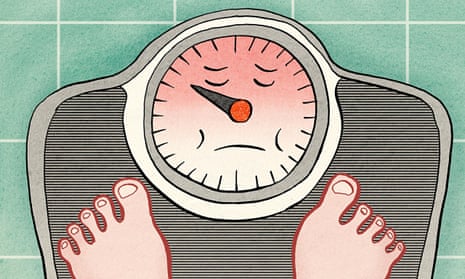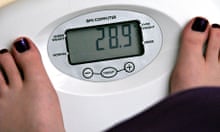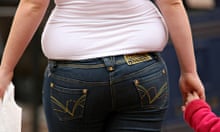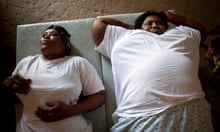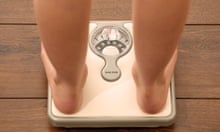She was only young, maybe 15 or so, and your heart couldn’t help but go out to her. Heavily overweight, she was trying and failing to squeeze between two tables – crammed, as they invariably are in McDonald’s, close enough together to discourage lingering – in order to sit down. And she had turned bright red not just with effort, but with humiliation. The irony of being too fat to fit comfortably into a fast-food joint probably wasn’t lost on her, any more than it was on the gawping lunchtime crowd.
But what struck me most is that while her thin friend carried a tray piled high, the girl didn’t actually seem to eat anything when she eventually wedged herself into a seat. She might have been on a diet, of course. But like many overweight women, she may have been being restrained in public precisely because she was afraid of people judging her. And yet here they all were – oh, let’s be honest, here we were – one lazy day this summer, unthinkingly doing just that.
Because sitting in judgment on fat people isn’t just what too many of us do, meanly, in private. It’s increasingly what some do openly; what the state is being urged to do officially. Doctors are told not to be afraid of the word “fat”, to stop muttering about body mass index and start telling it like it is. The TaxPayers’ Alliance questions whether it’s fair for the obese to be on disability benefits, and why they shouldn’t “take some responsibility”. And the professional stirrer Katie Hopkins, with her undeniably keen eye for the next big thing, last week moved on from demonising the unemployed and people who call their children Chardonnay to targeting the overweight, revealing that she had piled on over three stone for a documentary in which she apparently intends to lose it all again – just to show what she calls “chubsters” how easy it would be, if only they weren’t so darn lazy.
Tougher economic times, meanwhile, have only encouraged the sanctimonious and slim. Why should they hire someone who’s vastly overweight, when he or she may need more time off sick? When obesity costs the NHS £5 billion a year, aren’t they entitled to have a go at self-indulgent fatties, gorging themselves on all our taxes?
There’s just one big problem with all this shaming of fat people: it’s wrong. Not just morally, but scientifically. Research published today by University College London suggests that people who felt discriminated against because of their spare tyres – who had been the butt of jokes, patronised or hassled or given worse service in shops and restaurants – were actually more likely to gain weight.
They ate more to comfort themselves; became too ashamed to go to the gym and risk ridicule from the honed and toned. Those treated kindly, meanwhile, tended actually to shed pounds. Or to put it another way, Hopkins will probably send more viewers running to the biscuit tin than to Weight Watchers – which should surely worry such a hawkish advocate of lower public spending.
The extra weight gain the researchers found among the fat-shamed wasn’t insignificant: nearly a kilo in four years. Give it long enough, and it’s not hard to see how a plump but sensitive teenage girl grows up into an obese woman.
But where it gets really interesting is that this isn’t a call for fat acceptance, for tactfully adjusting to a new norm. The lesson drawn by researchers was that doctors should continue to try and get patients to lose weight, but by presenting obesity strictly as a health risk – something that might give you diabetes or a heart attack – and not as some kind of moral failing (Research suggests even doctors can unwittingly harbour negative attitudes and assumptions about fat people).
It isn’t about brushing anything under the carpet but rather dragging something out into the open; namely the fact that sniping skinnies, wondering loudly in public how anyone can let themselves go like that, aren’t part of the solution but potentially part of the problem.
Where obesity is a risk to health then it certainly needs to be tackled robustly in partnership between patients, trained professionals, and loved ones with a legitimate interest – backed up by manufacturers recognising their responsibilities and not loading food with sugar and fat. But what it can’t become is a free-for-all, an excuse for the rest of us pile in gleefully and wag the finger (preferably while casually letting slip that you’re still a size eight after three kids, so what’s their excuse?).
Allowing fat to become the last socially acceptable grounds for discrimination – and all too often a sly backhand way of having a crack at the poor, since the two are increasingly lumped together in the public and political imagination – would be not just cruel but counterproductive.
Thinking back to that day in McDonalds, I’m faintly ashamed to say that much as I sympathised with that girl, I did wonder if getting stuck might not be a turning point for her, the moment she realised something had to change. But perhaps it was a turning point all right, and one that would lead her in quite the opposite direction. Perhaps it’s not her who should have flushed with shame, but those of us who looked and judged.
Twitter: @gabyhinsliff
